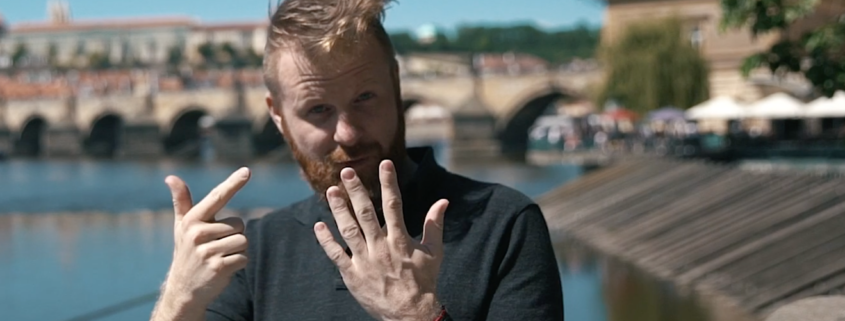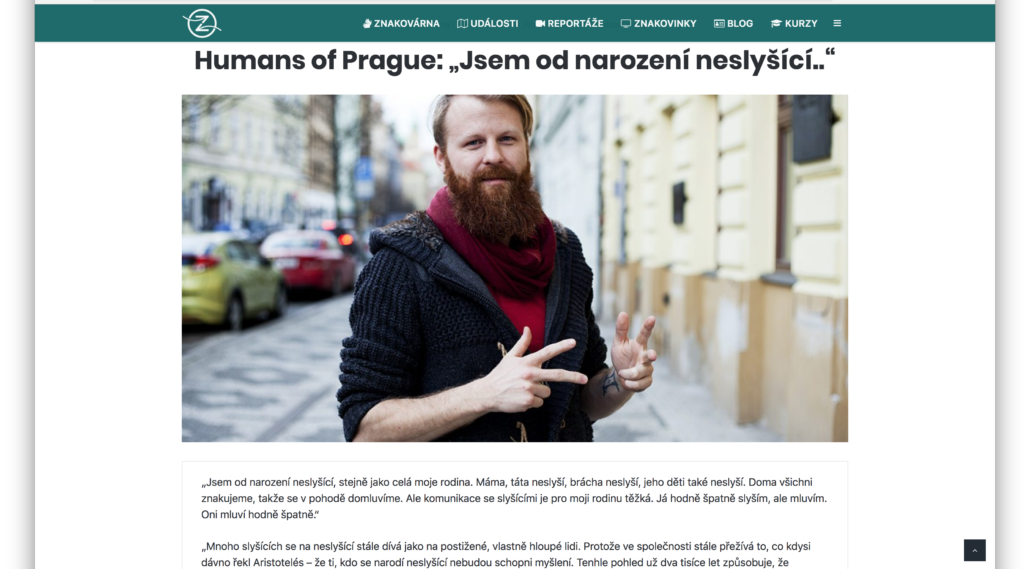Meet Deaf Travel: Building a Better Internet for Deaf People
Deaf Travel, the last of the StartupYard Batch 9 startups to be interviewed, is our first non-hearing team in the program. They are a team of Deaf entrepreneurs who have dedicated their careers to building up the Deaf community, both online and offline. Their mission today is to create an online platform and community focused on helping Deaf people to enjoy travel and adventures with the same depth that hearing people enjoy.
They are doing this by bringing together public attractions and organizations, with the worldwide Deaf community, and offering them a space where the needs of Deaf tourists can be met with Deaf-friendly video content, interactive maps, and other features that make foreign travel enjoyable and interesting. I sat down with CoFounder and CEO Jan (Honza) Wirth to talk about his team’s vision for the future of Deaf tourism and the internet. Here is what he had to say:
Hi Honza, first of all we should acknowledge that there is someone else in this conversation, Tim, your interpreter. As a deaf person, what do you find most challenging about communicating with hearing people?
Most hearing people have many misconceptions about the Deaf. They think we have less intelligence or skills and feel we can’t do many things, such as drive a car, work, etc.
These misunderstandings stem from the communication barrier we have between hearing and Deaf people. If we had a common language, then many of these false ideas would solve themselves. Hearing people can learn sign language, but a Deaf person cannot learn to hear! As a Deaf person, I deal with these barriers every day.
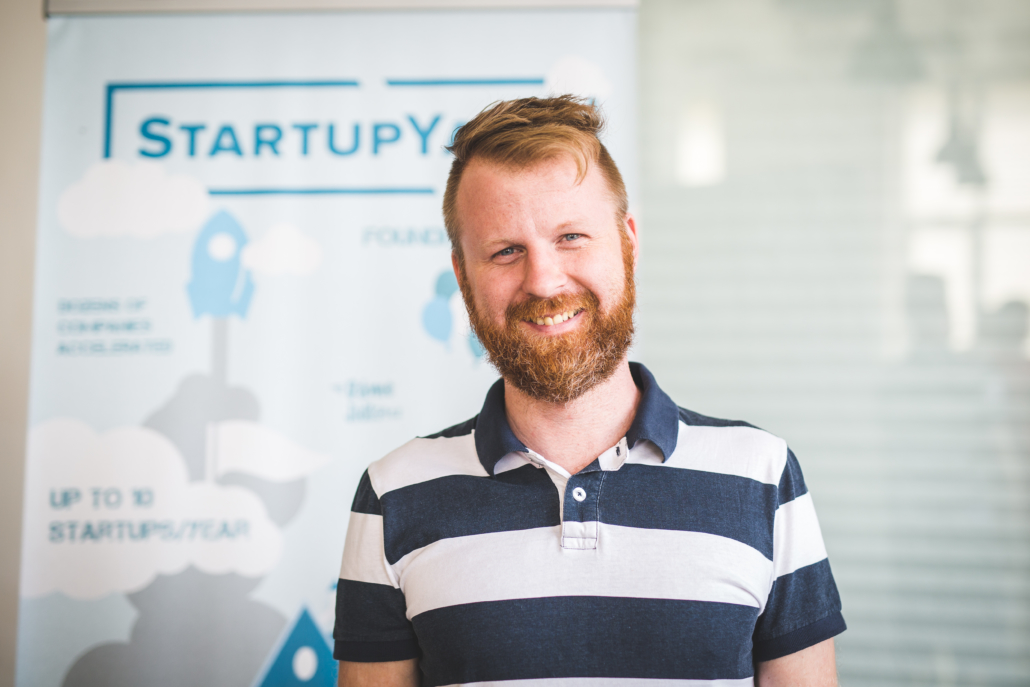
Jan Wirth, CEO and CoFounder of DeafTravel
One of the ways we can solve this is through interpretation. In fact, what many hearing people don’t realize is that interpretation in our own sign language is far superior for Deaf people than simply reading. Written and spoken languages, such as English or Czech, are native for hearing people, but they are always second and third languages for Deaf. I can write and read in English and Czech, but for me that is a very different experience than it would be for a native speaker. Writing is the same: we must translate our thoughts into a foreign language in order to write. Thus even in writing, an interpreter is very helpful.
I use different methods to try to break through the communication barrier. If I have to communicate about something very important like a mortgage, legal issue or a job interview, then I use an interpreter for clear understanding for all. In common interactions like a restaurant, ticket office or a shop, I can use gestures and writing back and forth. It is for deeper discussions that an interpreter becomes essential to bridge the divide.
How did you come to found DeafTravel, and why is a for-Deaf, by-Deaf travel platform so important to the Deaf community?
I have been dedicated to improving the Deaf community my whole life. I am the founder of our first community center in Prague, called Znakovarna. This is a place where Deaf and the hearing can gather to discuss new ideas and learn from each other, and support each other and the community. We host seminars, talks, and other Deaf-oriented events. Deaf Travel is one idea that comes from seeing what Deaf people talk about and what they really miss in the market, which is a way of getting this Deaf-friendly experience wherever they go.
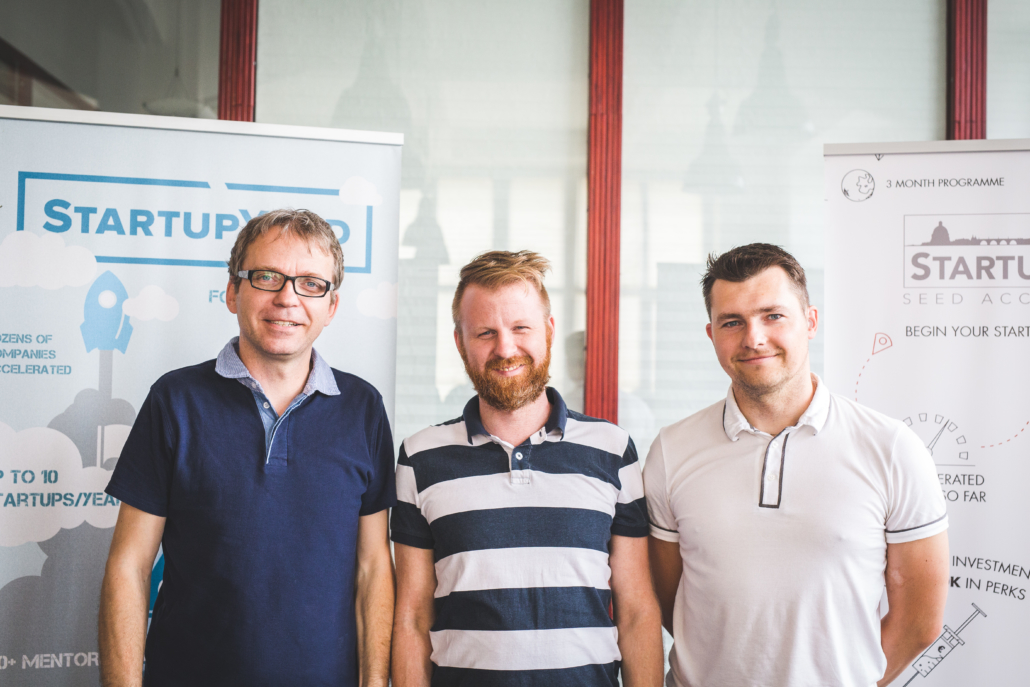
The Deaf Travel Team. The majority of the founders are deaf or hard of hearing.
Nowadays, smartphones are common within the Deaf community and they have a huge positive affect for us. Such technology and the ecosystem of apps allow us an equal footing for chatting and staying in touch with our friends and family via video, or text. We can use our native sign language to make quick interactive video chats. We can even use some interpreting services via our mobile phones, which opens doors that have been shut to Deaf people until now. It is a great time to be alive.
But mobiles haven’t solved all the everyday barriers for us. Yes, the tech is amazing, but they aren’t the ultimate answer for the barriers we have, especially when we travel. In the USA, the benefits for the Deaf there have skyrocketed, but these don’t spread worldwide for various reasons.
One of those reasons is that European and worldwide Deaf communities have many sign languages, just as hearing people have many languages and cultures, and so there are always added challenges for smaller Deaf populations to find content in the sign language which they use every day. Those of us who travel, especially in Europe, learn International Sign System (IS), which is not an actual language but follows the rules of most sign languages and uses signs from various sign languages.
Let us not forget, even when a Deaf person does understand multiple sign languages and written languages, this does not change the fact that other Deaf may not have those skills. Hearing and sighted people take the internet for granted today. You can Google anything, and find whatever you are looking for. But how does one “Google” content which is in a sign language? How does one tell Google the signs they want to search? Of course these functionalities are not available.
Think of it like this: imagine the internet was only in Chinese, and to use Google, you had to learn how to read and write in Chinese. Not impossible! But very hard, and very unnatural. You would not find the internet so useful if the only way you could communicate and consume content was in a language that is not your own. Thus, Deaf people are discouraged from creating and sharing content, because other Deaf people cannot find and use that content very easily. It means that for many purposes, the internet as you understand it is beyond our reach.
On the close horizon, we have newer tech, virtual reality (VR) and artificial reality (AR), that has great potential for us all. For the Deaf it could mean even better access to information, because we are such visually-oriented people. VR/AR means more access to interpretation and visual information displayed in a Deaf-focused way.
Still these technologies are yet to become reality. We want to begin to change that, and we understand that the way to do it is to begin using what we have to solve the problems of Deaf travelers. Deaf Tourism is on the rise, and we can feed and encourage this with content and a community in the format that Deaf people will really be able to use, and ultimately contribute to themselves.
Our platform can give deaf travellers access to information equal to hearing travellers, just by using the smartphones or other devices that Deaf people already have. It’s a visual platform, using maps and images to help Deaf travelers find content focused on the sites they are visiting. Eventually, we will be able to provide a forum for the Deaf to create and share relevant content, based on real world landmarks, much in the way that Yelp, Google, or Facebook function for hearing communities today.
Many of our mentors and investors have been surprised to learn about the difficulties that deaf people have with getting information in a format they can use. Can you talk about why reading and writing are such a challenge for the deaf?
There are two main problems that are caused by many forces, socially, economically and politically. In addition, these problems are worldwide in varying degrees.
The first is that education for the Deaf has been historically lacking, sometimes pathetic, and often downright horrible. For most of history, we have been treated as mentally disabled by society, because people did not understand that we can learn and think just as hearing people do if we are educated in a way that makes sense for us.
The curriculum in most Deaf schools is not the equal to the what is taught in hearing schools. As well, the Deaf students who are sent to the hearing schools do not always have a quality interpreter. These same students also have less socialization with their hearing peers, since the language of the hearing school is spoken.
The second problem in both of these types of schools is that the teachers usually don’t know the students’ native sign language. Which means the student is using an interpreter, or even nothing in many cases. The student is simply expected somehow to adapt. Most deaf schools in the world focus on making the students learn to speak, and the actual education is dismissed as less important. This is sad, since teaching speaking to Deaf is rarely successful or needed.
This is treating the Deaf as if their goal in life should be to compensate for their lack of hearing. I think that’s just silly. I wish to live in a world where the Deaf are treated as different, and not as disabled. We can teach and learn from each other, and we have rich cultures and languages to draw from.
As I think the StartupYard team have learned from us during our time together, we can share our ideas and our dreams with a little shared effort. The Deaf have much to offer and indeed to teach the hearing, just as we have much to learn.
Let’s talk more about Deaf Travel: what does the solution look like today, and how can people use it?
Our first focus is on proving the value of Deaf content for travelers. We are doing this by focusing on getting landmarks and tourist locations and attractions interested and involved with the platform. This means creating content focused on these locations, that the Deaf can use in place of guided or audio tours, and also content that the Deaf can use to do their travel research, such as deciding what monuments to visit, and even finding Deaf-friendly services in the destination city or country.
This means a Deaf tourist can experience the story of the site in his own native language without being dependent on others. The Deaf tourist today has little freedom of action or choice in making travel decisions. If we do not depend directly on others to help us plan and navigate a trip, then we still must face a lack of depth and context in what we see and experience. Tell me how many times you would go to the cinema if the sound was always turned off? That is the experience we face almost everywhere, and the worst outcome is simply that we choose not to go somewhere new.
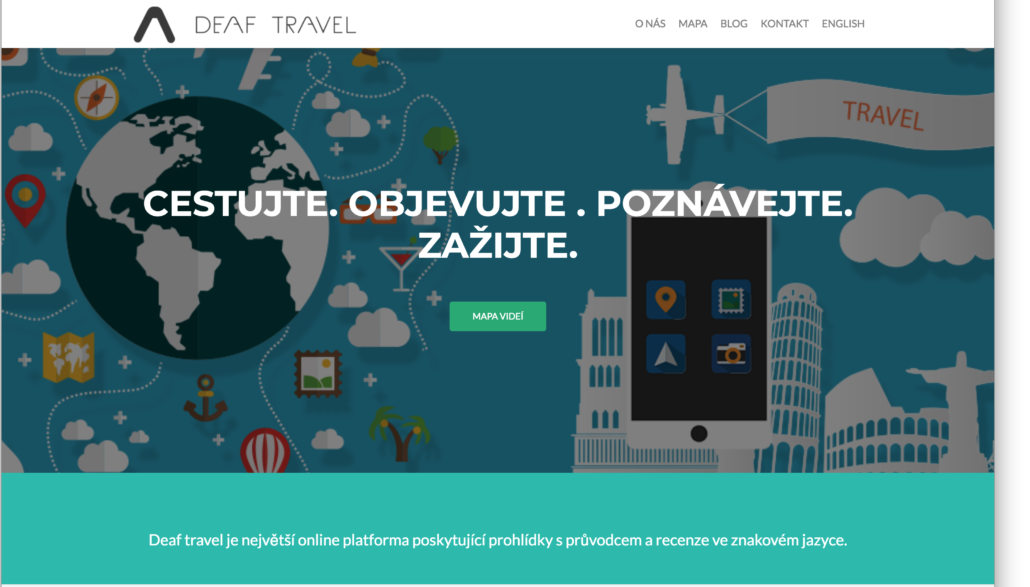
We want to create a way for Deaf people to enjoy traveling, and also a reason for Deaf people to travel and experience more. If more content and services exist and are accessible for Deaf people, then more of us will travel, and so even more demand will arise for these services. We want to prove now that such a demand does exist and that it will grow when attractions and cities invest in building up their ecosystem of Deaf resources.
What do you want Deaf Travel to be a few years from now? How will Deaf people use it in their daily lives? (note: talk about tripadvisor, Yelp, deaf reporting, etc)
It’s simple really. We envision individual Deaf travellers accessing our platform of videos via our Deaf Travel App. Similar to the services of Tripadvisor or Yelp, our app will be a community of amateur and professional deaf video “reporters”. Each reporter will upload their videos to our server and the community can search for, watch and review individual videos and locations, based on visual maps instead of text search. They will be able to use it in their daily travels at locations around the world.
The key is to create this connection between the “local heroes,” and the travelers. You can be a local hero in your home town, who makes videos and helps visitors, and you can benefit from the work of your fellow heroes around the world when you travel. You can also create content as a traveler, aimed at your own community, who may also travel to the same places in the future. This new online community platform will also be a place for promoting Deaf-owned or Deaf-friendly companies, Deaf events, interpreting and other services.
Deaf Travel will be supporting the community so that the community will support itself. What do you think happens when one restaurant in Prague becomes known internationally as the place to be for deaf visitors? I can tell you: it will be very successful, and this will allow entrepreneurs from the deaf community and from outside it, to explore new opportunities. It is a big, untapped market that is still invisible to most people.
How will Deaf Travel deal with the complication of having many different native sign languages that travelers know?
Yes, many people think that there is one universal sign language, as I mentioned. I’m not sure why! I mean how would you get people in every country to agree on one language when each culture is different? Yet people think we Deaf could do this ourselves.
Karlův most, Praha (ČZJ) from Deaf Travel on Vimeo.
Each community in each country has its own natural sign language which is connected to that culture, as all languages are. After all I am a Czech man in addition to being Deaf. I need a language that fits with this identity, and it is the Czech sign language. Each sign language has different dialects as well, just as spoken languages do.
How do we solve this situation of such diversity?Deaf Travel will use video reporters in each country to have that local sign language in the videos there, in addition these videos will have a second communication mode called International Sign System (IS). This fills the function that English fills for many international travelers.
Not everyone knows IS, but most Deaf tourists have learned it by travelling and meeting other Deaf in their travels. IS was developed by Deaf in the European region where many languages and cultures converge. It uses the basic visual grammar, syntax and structure that almost all sign languages have. It then adds clear vocabulary from various sign languages. It is not a pure language, but a good method for everyday communication.
Today you’re looking for tourist attractions to join you as partners to create quality content for their deaf visitors. That is hard to scale. Over the long run, how do you see the platform being monetized and growing as a business?
As I just mentioned, the community of travel vloggers and reporters all over the world will add to our video library quickly.
A traveler in Peru and a traveler in Germany could upload their videos during the same week, but from different trips, and thus we’ve increased our library by several short videos in two different countries in the same week. Those videos will be catalogued and tagged on the appropriate map for that region. The map with these pinpointed videos will be the growing visually searchable platform for other Deaf travellers.
Understand that the Deaf community is small and news always travels fast within our network. Awareness of Deaf Travel’s platform will equally spread like wildfire, because Deaf travellers will be eager to add their own amateur travel vlogs to the database alongside our professional ones to share their experiences, good or bad, with the community. Everyone has a need to communicate and to help each other. You just need a way to do it.
These videos will be accessible for free or for a monthly subscription price for our full-length professional travel vlogs. In the world, there are approximately 466 million Deaf and Hard of Hearing. 70 million of those use a native sign language, for those who do not, we will offer subtitles as well. So, the market potential is great and will sustain our mission of supporting the community by tearing down the travel communication barrier.
You’ve been our very first Deaf founding team at StartupYard. How has the experienced matched up with your expectations? What have been the biggest surprises?
Overall, the experience has been amazing. There were a few moments when things did not click with us, but I’d say 99% of the people we met and worked with were great.
At first, I was truly shocked that we were picked for StartupYard. I didn’t think there would be much interest in our project. Then after meeting so many mentors and EVERY one of them showed interest in our vision, our motivation increased exponentially. We now feel like we really have something that will make this dream of barrier-free travel a reality.
Perhaps I did not have enough faith in hearing people to see the potential that we see in this idea. However I have seen that this is a problem anyone can understand, and it has been wonderful to see that others who have not experienced these same problems can deeply empathize with it.
As the StartupYard team have told us many times, what we do must become somehow obvious on first sight to people with no experience of the problem. That is something I think we have accomplished and it is really exciting to be able to open people’s eyes to it.
What kinds of partners and potential clients are you looking to talk to right now, and what’s the best way for them to start cooperating with Deaf Travel?
That’s a great question. We’re looking for well-known tourist destinations that attract thousands of tourists every year. The kind of places that are famous and have a very interesting story to tell, like cities such as Prague, castles, zoos, museums, and other such attractions.
Lesser known sites are also of interest to us, because our mission is about equal access to information for our community. It is our way of supporting the social and civil rights laws in place now. We don’t want to be dependent on others to provide these services. We know what we want and need. The world has provided us with the political backing, and we want to partner with those who support this vision too.
We don’t need people to see this necessarily as a charitable or humanitarian activity. It is an opportunity for Deaf and hearing people to fill a great need that exists and to build new businesses and provide all-new services. Invest in serving the Deaf community and we will vote with our money just as everyone does.
Thus if you are a forward-looking institution or a business, that can see a great opportunity to lead the pack and be a magnet for Deaf tourism, then we want to talk to you. If you are an adventurous Deaf person who wants to serve the Deaf community, or an entrepreneur who wants to explore a new market, then we want to talk to you.

